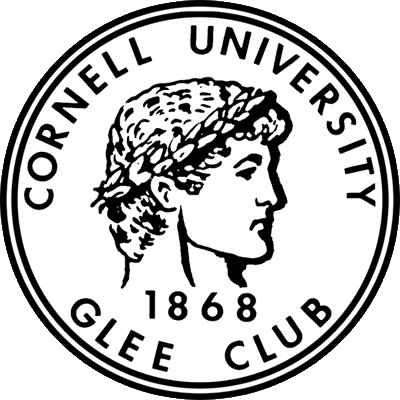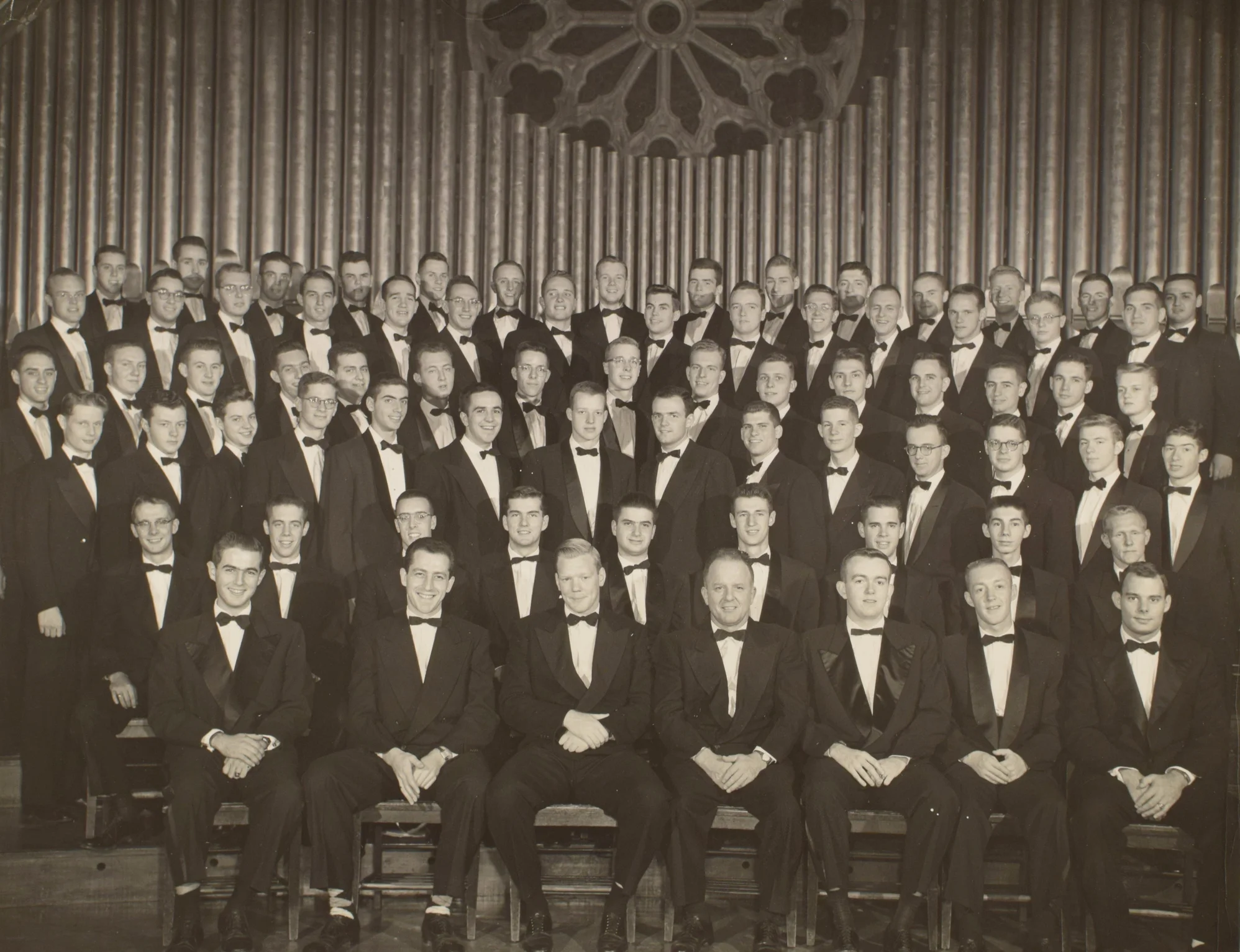Our History
The following is an excerpt from Songs From the Hill - A History of the Cornell Glee Club by Michael Slon '92. His book may be purchased at any official Glee Club function.
In the fall of 1868, little more than a month after Cornell University opened its doors, students banded together to form the Orpheus Glee Club, the first home to student singing at Cornell. Originally composed of a vocal quartet, several accompanying instrumentalists, and a poet, the group gave its first (and as far as history reveals, only) formal performance on January 21, 1869. Other glee clubs and musical associations replaced the original Orpheus ensemble, and by the mid 1870's, the Cornell University Glee Club had emerged in name.
The Glee, Banjo, and Mandolin Club
For more than a decade, leadership passed haphazardly between students and teachers (including Estévan Fuertes, head of Cornell's civil engineering program), until in 1889, when Hollis Dann became director. Under Dann's gifted guidance, the Glee Club established a national reputation, expanding its domestic touring to include many major cities across the United States. Collectively known as the Glee, Banjo, and Mandolin Clubs, Cornell's Musical Clubs took their first international tour (and quite possibly the first international tour by any American collegiate ensemble) in 1895, travelling to England with the Cornell Crew. (That same year, the Musical Clubs Council was formed to govern the groups.) In 1904, Dann became Cornell's first professor of music, a post he held until 1921, when he left Cornell to continue his work elsewhere as a preeminent pioneer in American musical education.
In the fall of 1921, Eric Dudley took over the Glee Club, having come to the States from the Royal Academy of Music in London. During Dudley's tenure, the Glee Club made its first performances on radio, and to better compete with radio, changed its style of program to a variety show. When Dudley stepped down in 1942, John Kuypers took the helm until World War II forced a hiatus (as World War I had) in the Glee Club's activity. The group was reorganized in the fall of 1945 by a former chairman of Cornell's Music Department, Paul Weaver, and after Weaver died suddenly in the fall of 1946, Thomas Tracy, '31 (formerly an assistant conductor under Dudley), was appointed director. He led the Glee Club on a successful tour of the U.S. and Mexico in 1954, the same year the group appeared on the Perry Como show.
Thomas Sokol was appointed director of the Glee Club and Director of Cornell Choral Music in the fall of 1957. He immediately steered the ensemble toward a more serious repertoire and a more ambitious set of engagements; in 1961, the Glee Club was officially embraced by the University, ending the governance of the Musical Clubs Council. In the winter of 1960-61, the group became the first collegiate ensemble from the U.S. to take a concert tour of the Soviet Union. In 1966, under the aegis of the U.S. State Department, the Glee Club made a three-month tour of Southeast Asia, where they were heard by an estimated 100 million people in ten countries. Other tours have included Germany (1970), Eastern Europe (1972), England (1979, 1982), Asia (1989), and Western Europe (1992), Venezuela (2001), Brazil (2004), China (2008), as well as the perennial domestic tours.
After thirty-eight years of service, Sokol retired in 1995 the longest-standing director of the Glee Club, and was succeeded by Scott Tucker. Professor Tucker previously served as assistant director of the Harvard Glee Club (as Sokol once had), and as Director of Choral Music at the Milton Academy.
The Glee Club has collaborated with other ensembles on a regular basis. Since a joint performance in 1889 with the Amherst Glee Club, collaborations have included performances with the orchestras of Philadelphia, Boston, Buffalo, Rochester, and Syracuse, conductors the likes of Michael Tilson Thomas, Eugene Ormandy, and Nadia Boulanger, and choruses which include the Cornell University Chorus, the National University Chorus of Taiwan, the University Chorus of Geneva (Switzerland), and ensembles from around the United States. In 1966, the group celebrated the opening of the Saratoga Performing Arts Center with Ormandy and the Philadelphia Orchestra in a performance of Beethoven's 9th, and has sung first performances of works by Maximilian Albrecht, Carl Orff, and Pulitzer Prize-winning composer Karel Husa.
Since the first days of the Orpheus Glee Club more than one hundred and fifty years ago, the Glee Club of Cornell has become a home to thousands of young men who have traveled in all walks of life, from music and medicine, to agriculture and astronomy. The group has performed songs of Bernstein on Malaysian television and songs of Shostakovich in the Moscow conservatory, sung in more than a dozen languages and logged hundreds of thousands of miles, brought music to millions of people as near and far as the students of Cornell and rural school children in Taipei. Today, the Cornell University Glee Club is recognized as one of the premier collegiate ensembles in the United States.


